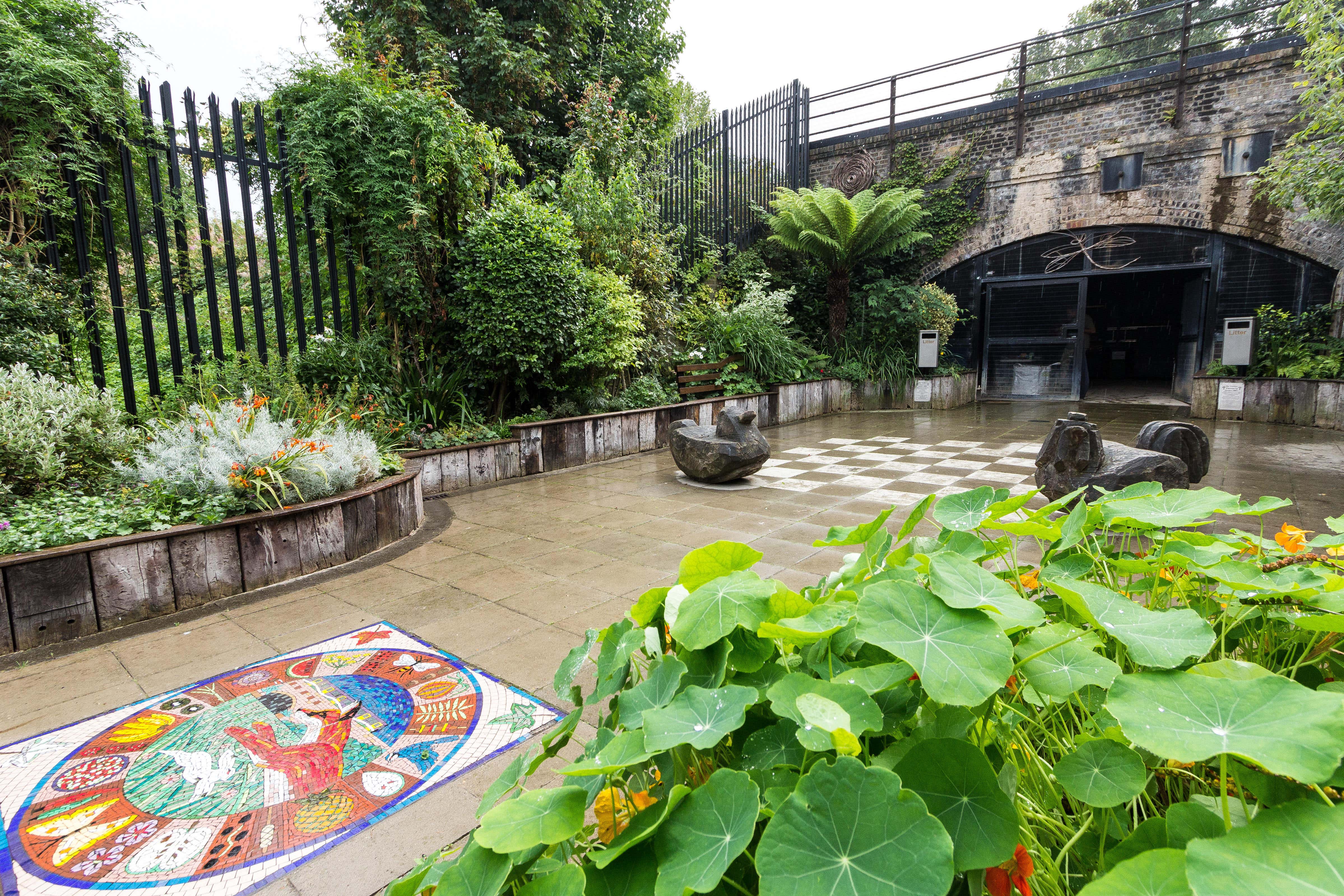Tayshan Hayden-Smith on how inner city community gardening can help mental health
The ‘guerrilla gardener’ talks about creating a small space revolution.

It was the Grenfell Tower fire tragedy in London, which prompted former semi-professional footballer Tayshan Hayden-Smith, who lives a stone’s throw from the 24-storey block of flats where 72 people died in July 2017, to begin his journey in community gardening.
“I stumbled into a derelict, unused, barren space of land that would soon become my place of healing in the months following,” he writes in his new book, Small Space Revolution. “Nature had come to my rescue.”
Since then, Hayden-Smith, 27, has in one way or another been spreading the word about the importance of nature, green space and reconnecting communities.
He helped create the Grenfell Garden of Peace in 2017 and later set up Grow to Know, a social enterprise that showcases the power gardening has to heal and unify, with his friend, designer Danny Clarke, aka The Black Gardener (star of TV’s The Instant Gardener).
Together, they have made several appearances at Chelsea Flower Show, winning a medal in 2022 for their show garden Hands Off Mangrove.
They aim to make horticulture more inclusive, by inspiring, supporting, and educating young gardeners through greening disused spaces across London.
In the new book, Hayden-Smith offers advice on how to create community planting spaces, how to get children engaged and looks at projects around the world which have been successful.
He also gives guidance on simple tasks like making your own planters, raised beds and composting, and explains no-dig principles and how we can do our bit to green inner city spaces.
“I don’t think we quite realise the extent of the effect our environment has on both our mental and physical health,” he says.
“Even having your hands in the soil and feeling at one with the earth does something to your soul, which you can’t find anywhere else. We are all part of the eco-system, we are all part of nature. By being in the garden and by being in green space, by being in nature, we are really bringing that to the fore.”
Hayden-Smith’s own mental health has benefited by being immersed in nature, he agrees.
“In the same way that I step over the line on a football pitch, my mind goes to a different realm. I couldn’t tell you what I was thinking for 90 minutes because I’m in a different universe. I get the feeling in a different way by stepping into a garden. The whole world around me doesn’t really matter. All my worries blow away in the wind.”
How to create a community space
“It all comes under connection. Speak to neighbours, people that you know and even people you don’t know, to try to find those common interests,” he says.
“Gardening is the conduit to community. Maybe there’s a space that’s already available that you don’t know about, but you just need to find out. A lot of people don’t speak to their neighbours anymore. Growing up, my mum knew the whole community.”
Do you need to make it official?
Hayden-Smith started his horticultural journey as a ‘guerrilla gardener’, by just finding a disused area and planting things in it.
He says: “If you want to navigate the local authority, speak to councillors and explore what was there before. Find out if there are any plans for the land now, have that conversation. But also rally people around you.
“In essence, you are going to either benefit or suffer as a consequence of whatever happens to that space, so why wouldn’t you want to be involved in that? If it’s something you pass every day and engage with, why would residents not be able to take ownership of space that they are engaging with?”
Put nature at the forefront of design
The book features pictures of ‘Bosco Verticale’, (translated vertical forest), a tower block in urban Milan which is awash with greenery on balconies.
“Biophilic design is how you put nature at the forefront, whether it’s soft edges and curves or integrating plants.
“You can’t really quantify what that does to your mental health and wellbeing but you walk into a space like that and you don’t realise why you feel so much better.”
Small Space Revolution: Planting Seeds Of Change In Your Community by Tayshan Hayden-Smith is published by DK, priced £16.99. Available now.
Bookmark popover
Removed from bookmarks